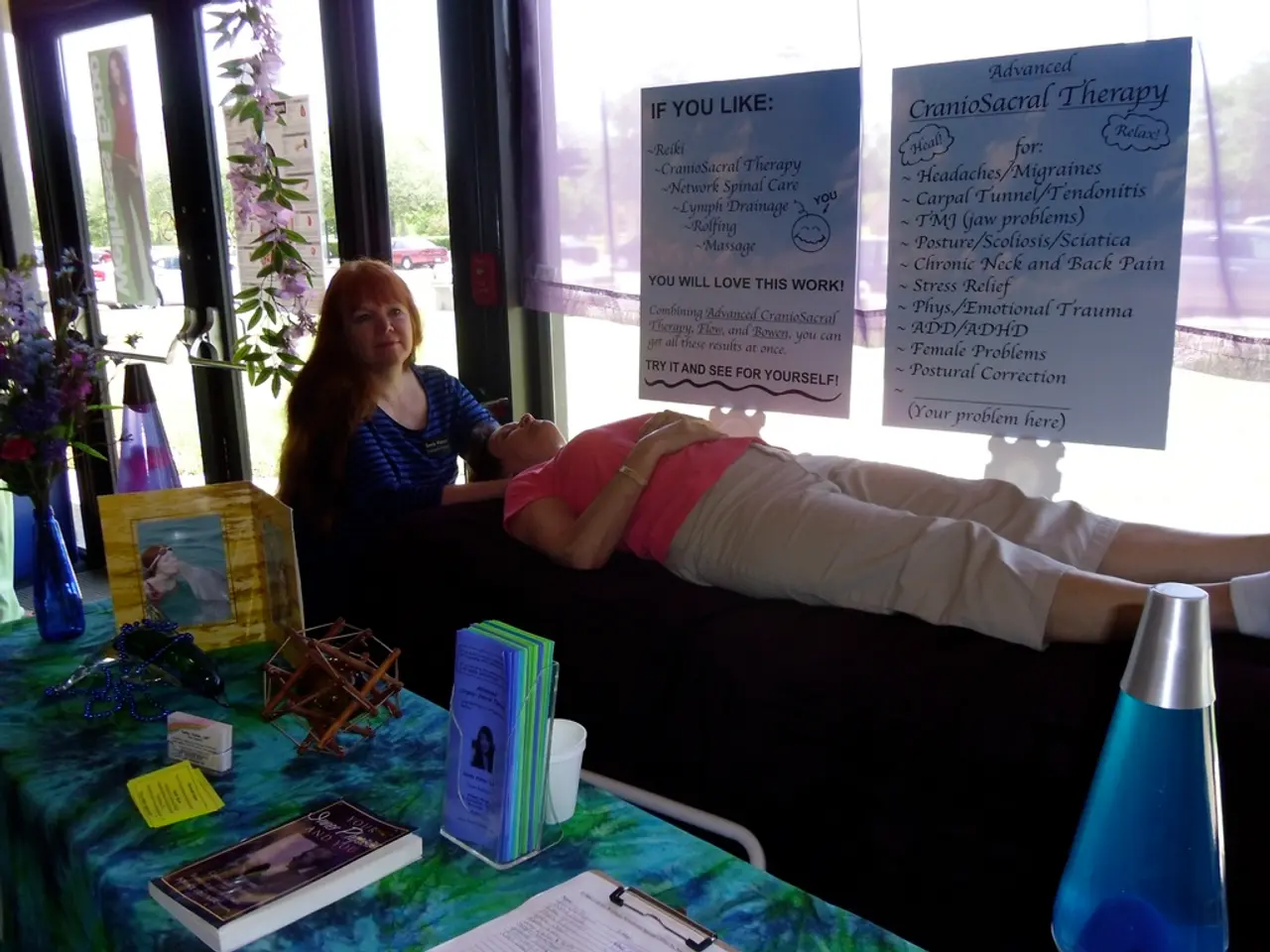Unprecedented advancements in combating depressive conditions
In the world of mental health, depression is a complex condition that affects millions of people globally. Unlike popular belief, there is no singular standard treatment for depression. Instead, doctors create a tailored treatment plan for each individual, which may include various medications and psychotherapy.
However, even with ongoing treatment, some individuals may experience a return or worsening of depressive symptoms, a phenomenon known as breakthrough depression. This condition occurs when a person who has been on an antidepressant treatment regimen experiences a recurrence of depressive symptoms despite continuing the same medication at a stable dose that was initially effective.
Breakthrough depression is a complex issue, with several potential causes. One of the main reasons is tolerance to medication, where the brain adapts to the antidepressant's presence, diminishing its effectiveness. Another factor is the multifactorial nature of depression, which includes genetic, neurological, hormonal, and environmental factors. Changes in these can alter the response to treatment.
Neurochemical changes also play a significant role. Antidepressants like SSRIs or SNRIs work by maintaining levels of neurotransmitters like serotonin and norepinephrine. However, patients' brain chemistry varies, and some may develop neurobiological changes that reduce drug efficacy. Chronic stress can also cause hippocampal atrophy and other brain structural changes linked to depression severity, potentially impacting treatment response over time.
Symptoms of breakthrough depression are similar to classical depressive symptoms, including persistent feelings of sadness, hopelessness, loss of interest, fatigue, changes in appetite or weight, sleep disturbances, problems with focus, memory, and decision-making abilities, feelings of worthlessness or guilt, thoughts of death or suicide, and a preoccupation with dying.
Addressing breakthrough depression requires a multidisciplinary approach. Doctors may recommend adjusting the dosage or switching to a different class of antidepressant. Combination therapy, using multiple antidepressants targeting different neurotransmitters or adding augmentation agents, is another option. Psychotherapy, such as cognitive-behavioral therapy or interpersonal therapy, can also be beneficial, especially when combined with medication.
In cases of breakthrough depression, adherence to treatment is crucial. This involves taking prescribed medications as directed, following the recommended dosage and schedule, and attending regular follow-up appointments. Open communication with healthcare teams is essential for addressing concerns, side effects, or changes in symptoms, ensuring appropriate adjustments in the treatment plan.
It's important to remember that help is available for individuals experiencing a crisis or considering suicide or self-harm. The 988 Lifeline, Crisis Text Line, Befrienders Worldwide, and local emergency services are just a few resources available.
Engaging in self-care activities can also help manage stress and maintain emotional well-being. This includes activities that promote relaxation, self-reflection, and self-nurturing. Building a strong community of family, friends, or support groups can provide understanding and encouragement during challenging times, contributing to overall mental health.
Breakthrough depression is different from non-response to treatment, which is also known as treatment resistance or inadequate response to antidepressant medications. Breakthrough depression is less common with selective serotonin and noradrenalin reuptake inhibitors (SNRIs) and tricyclic antidepressants compared to selective serotonin reuptake inhibitors (SSRIs).
In conclusion, breakthrough depression is a recurrence of depressive episodes in individuals with major depressive disorder despite being on a stable maintenance dose of antidepressant medication. It requires a tailored, often multidisciplinary approach to treatment and open communication with healthcare teams to ensure appropriate adjustments in the treatment plan.
A person experiencing breakthrough depression might find relief through adjustments in their antidepressant dosage or switching to a different class of antidepressant, as this condition can be more effectively managed with selective serotonin and noradrenalin reuptake inhibitors (SNRIs) or tricyclic antidepressants rather than selective serotonin reuptake inhibitors (SSRIs). Regular self-care activities and building a strong support system can also help maintain emotional well-being and manage stress related to mental-health issues.




